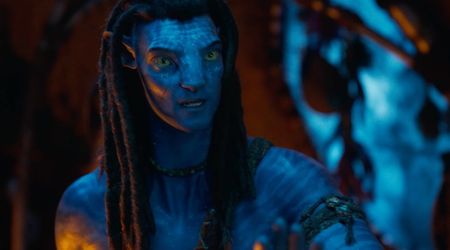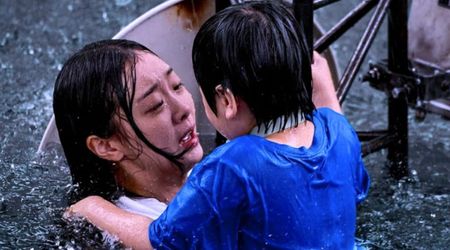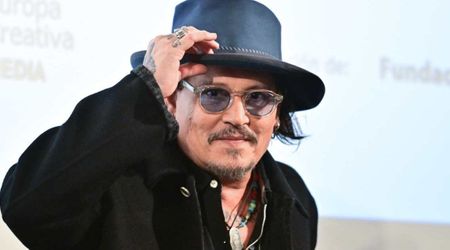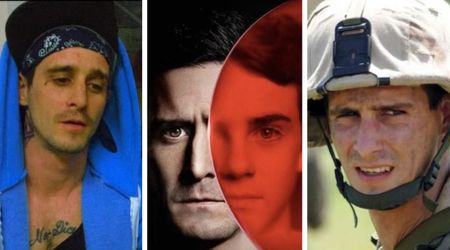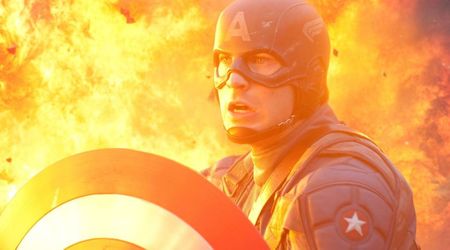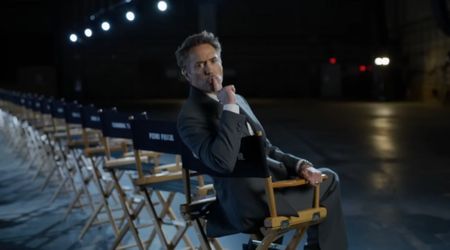Actor Steve Olson talks about playing a 'loser' on screen and becoming an actor in order 'not to work hard'

When one is unemployed on the verge of 30, what better way to derive inspiration and give life a kick-start than bonding with an old, grumpy widow, right? Well, doesn't sound like quite the ideal situation one would have in mind, but Rodney from "Fishbowl California" seemed to have no choice. But hey, things are not always as bad as they seem - as the face behind Rodney, Steve Olson, will tell you.
In the movie, that is now streaming on Amazon, iTunes, and Vudu, Steve plays the role of a pretty deadbeat guy, Rodney, who neither has a job, a house or even a girlfriend. Some would call him a loser, but the Hudson-native playing him on screen seems to have gotten quite the hang for it.
From doing odd jobs to stints in sketch comedies and several entertaining commercials later, Steve spills it all in a casual chat with Meaww. Here's what he had to say:
How would you sell 'Fishbowl California' to someone who is thinking about watching?
It’s a light-hearted indie buddy dramedy that feels reminiscent of 90s’ films, where the characters end up in better places than they started. It appeals to a wide audience age range since the “buddy” dynamics is between myself and a much older woman in her late 60s.
What can you tell us about Rodney? How far did you have to dig in to get into his shoes? Have you ever been accused of being a slacker?
Jeff York, of the Chicago Film Critics Circle, described Rodney best: “a slacker who thinks that his quick quips and bemused attitude about everything are enough of a resume.” That really made me laugh because it’s the perfect description. I’m sure I’m more of a slacker than I imagine myself to be. I was always motivated to become an actor, partially because I refused to work a 9-5. I guess it’s an oxymoron – I worked hard to ensure I didn’t have to work hard. There’s no winning.
'Fishbowl California' is a beautiful story about how two strangers turn to each other in their times of need. As funny as it seems to be, it is also heartwarming and possibly tear-inducing. How difficult is it to strike that balance and what do you do to enter that space of mind?
You enter it through script analysis and with the direction you’re given, in order to calibrate those levels correctly. Michael A. MacRae wrote really nice, quirky and comedic, yet it’s a vulnerable script that kept everything grounded enough to allow both genres to play at the same time. I think comedic scenes are always harder to pull off because they require so much caution and precision, but the fun is in that challenge for me.
How would you describe your experience on 'Fishbowl California?' What are some of your best memories from the sets?
It was basically my first leading role in a film, so I was very thankful to Michael for the opportunity. I loved working with everyone. I liked working at June’s house the best. I thought we got into a nice rhythm there with all of those scenes.
Could you walk us through the audition process? How early on were you associated with the project? Did you know the filmmakers prior to this?
I didn’t know the filmmakers prior. I got an audition, and they wanted a comedic scene to be sent in on tape. Then I got a call-back and sent in another tape, a more serious scene. Then they brought in Katherine and me for a chemistry read in person.
You have been on many short films. How different has the experience of working on a feature-length film been from that? What are some of the biggest lessons you learned while working on short film sets?
Shorts are practice. It’s like a band playing in a bar vs. a stadium, you learn and make your mistakes at the bar. The full film’s a whirlwind, you almost go out of your mind, even more so for the people making it than the actors I’m sure. You’re up at 6am, drive to set by 7, makeup by 8, first scene at 9. You film 12 hours with really no breaks, home at 10, work on next day’s scenes, asleep at 11 and up at 6 again. Multiply that by 15 or 20 days, and you don’t know which way’s sideways. (Or on a big studio film, maybe 3 or 4 months).
How has your stint in Acme Comedy Theatre influenced your brand of comedy?
Acme and Groundlings were both great. It’s live, so you learn to project and are forced to generate ideas, even if they suck. Live theater’s such a totally different performance than on-camera. It’s big and physical, where less-is-more on camera, but the theories are the same in both.
You have appeared on some of the funniest shows on TV. How would you describe your experience working in each of these shows in three words: New Girl, Those Who Can't?
Exciting. Anxiety. Famous People. That’s four, sorry. Well, it’s seven if you include me saying “That’s four, sorry.” Great, now we’re probably past 20.
Could you walk us through your journey to showbiz? Have you had to endure the quintessential odd jobs that come with the territory of being an aspiring actor?
I moved to LA when I was in my 20s and started auditioning. I got into commercials, which led to some film and TV parts, but I really enjoyed all of it, and you sort of keep doing all of it. I had many odd jobs. I started as a caterer and threw a dinner roll over a black-tie event- fired. I worked as a cell phone salesman at a Sprint kiosk in the mall, figured I’d leave all day since the phones were tethered to the booth. I came back, phones weren’t tethered as well as I thought- fired.
Is acting the ultimate goal or do other aspects of filmmaking appeal to you? What are some of the most interesting projects you are working on?
I like writing and certain aspects of producing, I’m not so much interested in directing. I’m working on self-generated content, and you can subscribe to my YouTube at YouTube.com/aplemank19 or check out steveolsonsite.com, I always post my new stuff there.
You can also follow Steve Olson on Twitter and Instagram.

